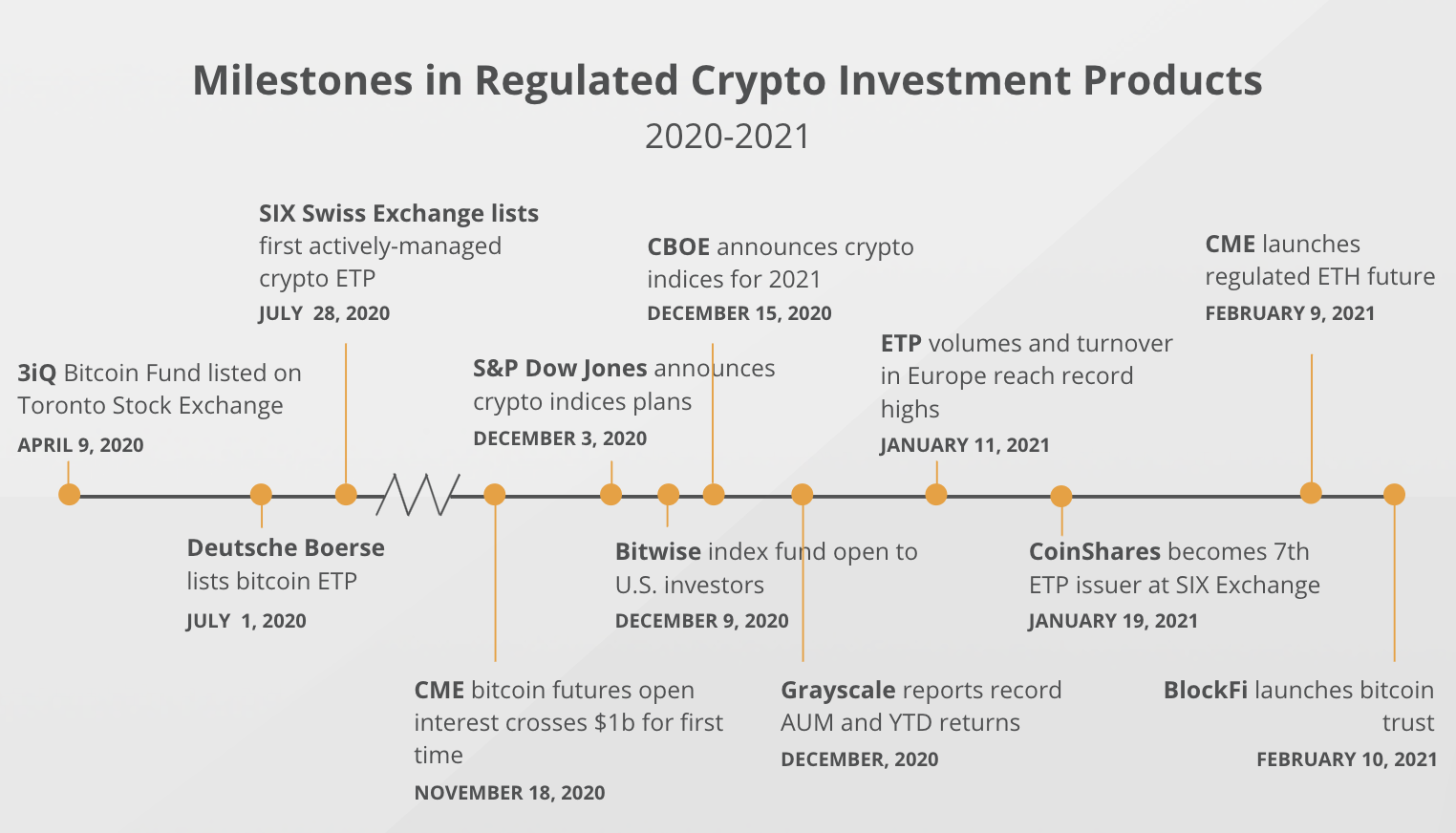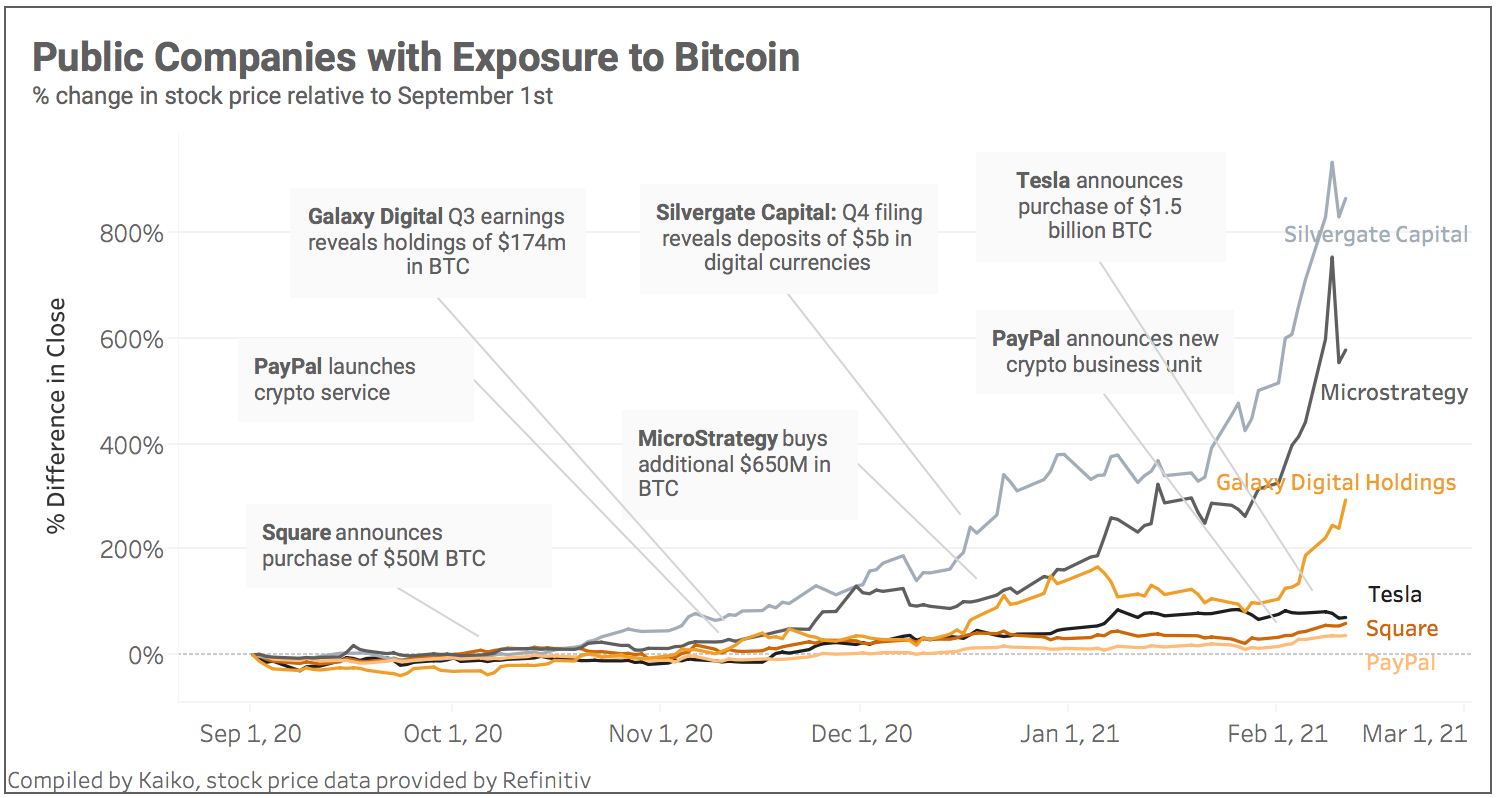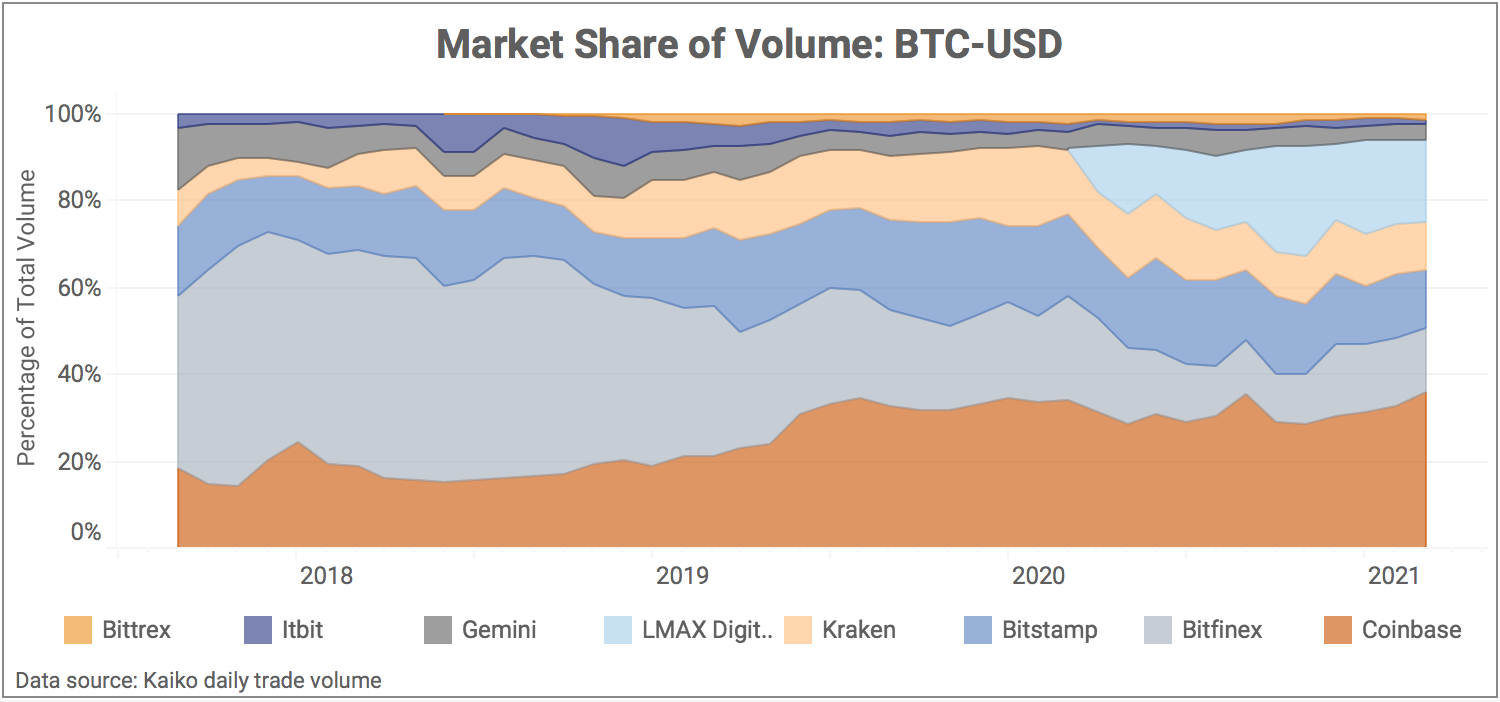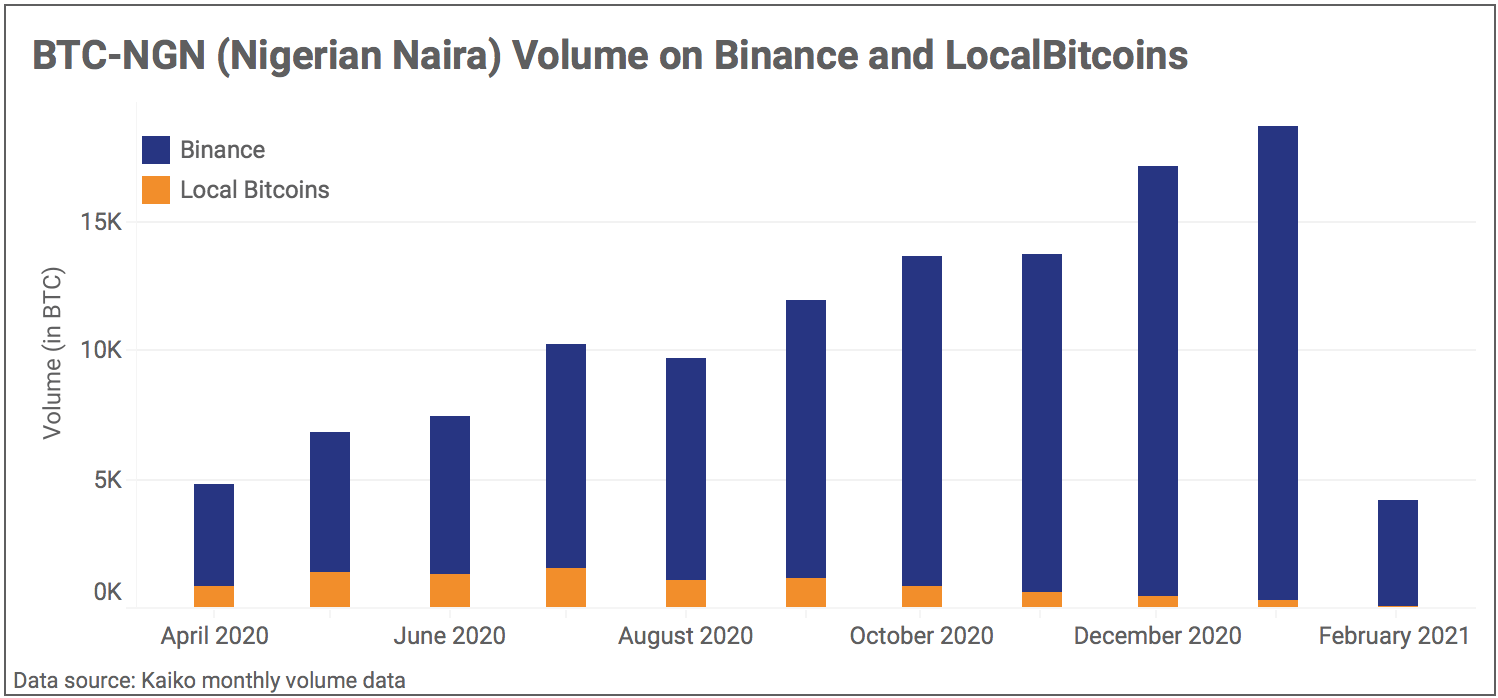
A summarizing review of what has been happening at the crypto markets of the past week. A look at trending sectors, liquidity, volatility, spreads, and more. The weekly report in cooperation with market data provider Kaiko.
The last 7 days in the cryptomarkets
- Crypto Adoption: There have been a lot of new exchange-traded products (ETPs) and indices on traditional exchanges, making it easier for investors to gain exposure to the crypto market.
- Price Movements: The bull run has officially spread to all sectors of crypto with new record highs for BTC, ETH, DeFi tokens, exchange tokens, and Dogecoin (yes, really), just to name a few.
- Order Book Liquidity: The quantity of asks on BTC-USD order books has surged, a sign that a sell wall could be blocking BTC’s climb above $50k.
- Volatility and Correlations: Bitcoin’s correlation with equities has been mostly positive since last March, a sharp break from the past.
Traditional exchanges are boosting crypto adoption

Over the past year, demand for regulated crypto investment products has soared. The increasing variety of exchange-traded products (ETPs) listed on traditional exchanges and the rapid development of indices have enabled more investors to gain exposure to crypto assets without the complexities of ownership and custody.
Crypto ETPs are now traded in Germany, Switzerland, Canada, Austria, Sweden, Gibraltar and have been green-lighted in Hong Kong, with new applications awaiting approval in a handful of other countries. Further, the launch or planned development of crypto indices by CME Group, CBOE, Nasdaq, Bloomberg, S&P Dow Jones, and IHS Markit lays the groundwork for a variety of tradable funds and derivatives products.
Traditional exchanges serve as the infrastructural interface between market participants ranging from licensed issuers to calculation agents to data providers to custodians, which is why the growth and diversity of crypto investment products will depend heavily on their lead. Collaboration with the crypto industry for the infrastructural requirements of these products will be crucial for ensuring success, which has the potential to drive a virtuous cycle of market efficiency.
Public companies take on crypto

Above, we take a look at the growing number of public companies that have gained exposure to crypto, either through their balance sheet or business ventures, and chart how their stock prices have evolved since September. We can observe that Silvergate, MicroStrategy, and Galaxy Digital have all seen triple-digit gains.
Last week, MicroStrategy hosted a widely attended event called “Bitcoin for Corporations” focusing on how institutions can benefit from exposure to crypto. Days later, BNY Mellon and Mastercard became the latest public companies to announce plans for a crypto offering. Overall, the recent institutional-fervor for crypto may just be getting started as more companies ponder what to do with growing cash balances and a resounding shift in sentiment.
Coinbase’s market share continues to grow

In light of news that Coinbase soon plans to go public via a direct listing on Nasdaq, we take a look at the exchange’s market share of total Bitcoin volume. Since 2017, Coinbase has grown its user base considerably and now holds more than 35% of total market share of volume. The traded volume of an exchange is closely associated with its role in price discovery, so the data suggests that Coinbase plays an important part in Dollar-based BTC markets.
Since the 2017 bull run, Bitfinex’s market share has fallen considerably. Recently, LMAX Digital has shown the most growth and currently poses the biggest competition to Coinbase in terms of volume traded, which is now nearly 20% of the total. Despite Coinbase’s lead, the majority of BTC-USD volume is not concentrated on a single exchange, which is a sign of healthy markets. However, if Coinbase continues to gain market share, this could put Bitcoin markets at risk should the exchange suffer problems.
Nigeria cracks down on crypto

Last week, the Nigerian Central Bank ordered all regulated banks to stop working with companies that offered crypto services in an unexpected blow to the growing Nigerian crypto industry. Binance was one of the only centralized exchanges operating in Nigeria, and has since suspended deposits of the Nigerian naira.
P2P exchanges like LocalBitcoins will still be allowed to operate. We charted the total monthly volume for the BTC-NGN pair on both Binance and LocalBitcoins, and can observe consistent growth month-after-month. Binance’s popularity in the country soared in 2020, while the volume of P2P transactions fell. With the new ban, P2P exchanges could see a comeback.
*Originally posted at CVJ.CH

